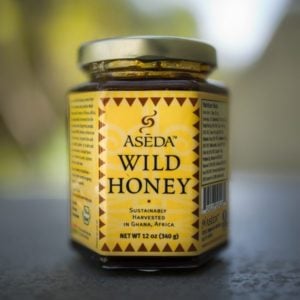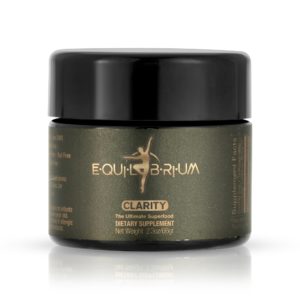Sharing is caring!
Most of us were brought up with pharmaceutical cough and cold remedies as the solutions for respiratory complaints. With the exception of antibiotics, these are typically designed for symptomatic relief. If they come in syrup form, they often have a nasty, sickly-sweet taste too.
But could the best go-to remedy for coughs and colds be a simple serving of quality honey?
Honey Comes Out On Top
In a recent study, a trio of researchers from Oxford University analyzed 14 papers with a total of 1,761 participants. All of the over-the-counter traditional remedies for colds and sinus infections were included, including antibiotics and honey. Of these, honey turned out to be the best solution.
Honey reduced the severity of coughing by 44 percent, the amount of coughing by 36 percent, and shortened infection time by two days on average. Studies on honey mostly used it alone, but some included honey with coffee or as part of the Grintuss and Honitus herbal mixes.
Some of honey’s benefits come from its stickiness, meaning it gives a protective, soothing coating to the throat. It isn’t just about symptomatic relief, however. Honey also has antibacterial properties that microbes cannot develop resistance against. These include a high concentration of sugar, which draws water out of the bacterial cells and kills them. And of course, honey tastes delicious! If you’re dealing with kids, or find the taste of pharmaceutical syrups revolting, this is a bonus.
Over in Australia, the Royal Children’s Hospital even describes honey on their fact sheet as a better treatment than pharmaceutical cough medicines. Research involving children has found that honey has equal or superior effects compared to over-the-counter cough medicines. In one of the studies, a single dose of honey halved cough severity scores from 4.09 to 1.93 on a 10-point scale.
Traditional Remedies: Just A Placebo?
Previous studies suggest that common over-the-counter cough syrups are no better than a placebo. A review of 60 pharmaceutical remedies sold in the UK found the true “active” ingredient may just be the sweet, bitter or spicy flavorings. Added sugar, honey, treacle, capsicum or lemon relieve dry throats by triggering reflex salivation. They may stimulate airway mucus production too, helping to soothe a dry cough and move microbes out of the lungs.
What’s more, the sweetness can mildly increase the production of our own opioids, which relieves pain and suppresses cough. Placing sugar on the tongue impairs hiccups, and the suppression of respiratory reflexes such as this and coughing is a feature of opioids.
Honey As An Antibiotic And Probiotic
Honey has antibacterial properties partly from its high sugar content and acidic pH, which dries out bacterial cells. Hydrogen peroxide is another contributor, and so are antimicrobial phytochemicals from the flower nectars that bees turn into honey. On top of this, honey has antioxidant, prostaglandin-inhibiting, and pro-healing effects, all of which reduce inflammation. The honey with the strongest antimicrobial effects is Manuka honey, a flowering tree native to New Zealand.
Unlike traditional remedies for cough, honey may have beneficial effects on the gut microbiome. Its prebiotics feed friendly species, while some of its antioxidants inhibit harmful ones. A lab study found that counts of two Lactobacillus species, L. acidophilus and L. plantarum, were 10-100 times higher in the presence of honey. Rats fed honey also had higher Lactobacillus counts than those given sucrose and rats in the control group. Lactobacillus species benefit immune health through mechanisms such as inhibiting pro-inflammatory species.
Raw Honey Is Best
Raw honey may be the best type when it comes to relieving respiratory infections. It has a higher antioxidant content than pasteurized products, as seen in a study comparing raw and conventional honey from the same floral sources.
This is important in fighting infections because our immune cells and tissues are exposed to high levels of oxidative stress. As the enzymes in raw honey are partly responsible, a lack of heating past 40 degrees helps to preserve honey’s antioxidant properties. Catalase is one of these antioxidant enzymes and is accompanied by others such as glucose oxidase and diastase (all enzymes end in -ase). Glucose oxidase helps produce hydrogen peroxide, another protective antibacterial substance. If we don’t heat honey to the point that this enzyme shuts down, it could continue to make peroxide. While catalase breaks up hydrogen peroxide, they would remain in balance with each other.
It’s important not to microwave your raw honey. Microwaving was found to inactivate two antibacterial components of raw honey, glucose oxidase, and defensin-1, which sounds and is tough. Defensin-1 disrupts the biofilms, slimy “shields” that bacteria hide under in chronic infection or disruption to our microbiome. Overall, keep your raw honey raw to maximize its antimicrobial effects.
Combining Honey With Other Natural Remedies
Honey can also be combined with other natural ingredients to relieve cough. A clinical study of 97 people tested a paste of honey and coffee; prednisolone (a corticosteroid); and the over-the-counter medicine guaifenesin against post-infectious cough (PPC). The paste was made with 20.8 grams of honey and 2.9 grams of instant coffee, and taken every eight hours for a week. After treatment, the honey-coffee group saw their cough frequency scores drop from 2.9 to 0.2. Use of steroids reduced scores from 3.0 to 2.4, while guaifenesin only relieved cough from a score of 2.8 to 2.7.
PPC is an annoying condition where a cough continues for weeks or months after a respiratory infection has resolved. It goes without saying that coughing is highly socially undesirable in the time of COVID-19, making relief even more important.
Elderberry may be another effective accompaniment to honey in treating flu infections. Sixty patients taking 15mL of elderberry syrup, four times daily, had their symptom durations shortened by an average of four days.
As for green tea, an observational study found that drinking one to five cups per day, six days per week reduced influenza risk by 40 percent compared to drinking it three days each week. Green tea and honey are compatible in terms of flavor. For a broad anti-inflammatory effect, this turmeric, coconut milk, and honey drink is both soothing and satisfying.
Honey is more than just a sweet condiment to spread on toast or rice cakes. Its antimicrobial, soothing, and protective properties could make it superior to traditional remedies for coughs, especially in children. Just ensure that it is high-quality, and preferably raw, although you can combine it with other natural remedies.
-
 Aseda Wild Raw Honey From Africa (Large)$25.99Rated 5.00 out of 5 based on 8 customer ratings
Aseda Wild Raw Honey From Africa (Large)$25.99Rated 5.00 out of 5 based on 8 customer ratings -
Sale Product on sale
 Equilibrium Clarity Superfood$59.45 – $290.00 — or subscribe and save 10%Rated 4.83 out of 5 based on 6 customer ratings
Equilibrium Clarity Superfood$59.45 – $290.00 — or subscribe and save 10%Rated 4.83 out of 5 based on 6 customer ratings



